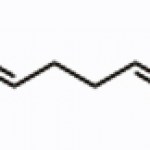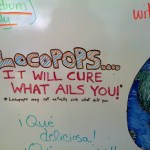Non-herbal supplements
Just before Christmas, the US FDA issued a warning regarding a clay-based traditional West African remedy for morning sickness called Nzu or Calabar or Calabash clay. We discussed this topic here when the initial health warning came out from Texas.
The problem with the product is that it contains high levels of lead and arsenic that could be toxic to both fetus and mother.
And now the problem has expanded beyond Texas.
Scott Gavura at his excellent Science-Based Pharmacy blog tweeted earlier that the New York City Department of Health issued a similar warning today:
February 16, 2010 - A…
It seems that bodybuilding supplement makers are challenging erectile dysfunction supplement makers to see who can recall the greatest number of products adulterated with undeclared, unapproved drugs.
In this case, an internet retailer of the following supplements has issued a voluntary recall of the following supplements sold between June 1, 2009 and November 17, 2009. The recall follows an FDA warning letter on detection of undeclared, synthetic anabolic steroids in these products:
Advanced Muscle Science Dienedrone, 60 caps
Advanced Muscle Science Liquidrone, 60 ml
Anabolic Formulation M1…
The US FDA has released a statement based on finding from the Texas Department of State Health Services on December 23, 2009:
The Texas Department of State Health Services is warning consumers, especially pregnant or breastfeeding women, to avoid consuming a traditional product called "Nzu" because of the potential health risks from high levels of lead and arsenic.
Nzu, which is consumed as a traditional remedy for morning sickness, has been found by DSHS food inspectors at two African specialty stores - one in the Dallas area and one in Houston. It was also found at a distributor in Houston…
Meet squalene:
Squalene is a 30-carbon branched structure made from isoprene units in the production of cholesterol and other endogenous compounds such as glucocorticoids and sex steroids.
We all have squalene in our bodies. We NEED squalene. All mammals make squalene. Even fungi make squalene (for a compound called ergosterol that is required in their cell membranes).
So ubiquitous is squalene is that it is extracted commercially from shark liver oil. Squalene is intentionally added to cosmetics sold as "natural."
Squalene is also a component of a vaccine adjuvant that has been used for…
Rebecca Skloot, journalist, University of Memphis writing professor, and author of the upcoming book, The Immortal Life of Henrietta Lacks (pre-order here), just brought to my attention this commentary by Dr Pieter Cohen in the New England Journal of Medicine entitled, "American Roulette -- Contaminated Dietary Supplements."
In the commentary, Dr Cohen remarks upon the epidemic of adulteration of herbal and non-herbal dietary supplements with undeclared prescription drugs or unapproved drugs:
In July 2009, the FDA expanded its alert to include 75 tainted weight-loss products that contain…
We've spoken here every few months about so-called natural dietary supplements being adulterated with prescription drugs used for similar indications. The most common of these of late have been erectile dysfunction supplements which have been repeatedly found to contain the active compounds present in prescription E.D. products such as Viagra and Cialis.
The latest public health advisory from the US FDA concerns what appears to be a much more serious case of adulterations, this time with steroids in body-building supplements marketed as containing "steroid-like" compounds:
The FDA is…
In the United States, herbal and non-herbal dietary supplements can be sold without any assurance of safety or efficacy as a result of a hastily-passed, late-night, final-session piece of legislation put forth by Sen Orrin Hatch (R-Utah). (Aside: Utah has several large dietary supplement manufacturers.) This piece of legislation is named the Dietary Supplement Health and Education Act of 1994, or DSHEA. A FAQ for consumers is provided by the US Food and Drug Administration here.
An unusual aspect of the law is that supplement manufacturers can make a variety of wellness or structure-function…
FDA and the New York Times are reporting today 23 cases of adverse reactions to various Hydroxycut weight loss supplements. (FDA Consumer PDF here).
Above and beyond whether the stuff actually helps with weight loss, it is clear that the products contain some compound(s) that cause idiosyncratic cases of liver damage.
According to the law governing dietary supplements, the F.D.A. is empowered to act only in cases when it identifies a harmful or adulterated product that is already on sale.
"Part of the problem as you know is that F.D.A. looks at dietary supplements from a post-market…
Regular commenter and friend of Terra Sig, leigh (the path forward), let us know overnight that Florida State Veterinarian Dr Thomas J Holt officially confirmed that selenium overdose killed 21 Venezuelian polo horses in Wellington, Florida, on 19 April.
An attempt by an Ocala, Florida, compounding pharmacy to reproduce an equine dietary supplement called Biodyl resulted in a toxic dose of sodium selenite to be given to the horses. The pharmacy is cooperating fully with the FDA and other authorities but there is no official word as to whether the pharmacy made a calculation error or were…
Last weekend, 21 Venezuelan polo horses collapsed and died at the US Open championship match at the International Polo Club Palm Beach in Wellington, Florida (AP, CNN). The deaths have now been associated with injection of a veterinary mineral supplement produced by a compounding pharmacy in Ocala, Florida. Located in central Florida about 45 min south of the University of Florida, Ocala is well-known for its density of equestrian farms and training centers.
Precisely how this supplement killed the animals is not yet known but I can guarantee that it was a calculation error involving an…
An interesting question arose the other day when we discussed the Key West acupuncturist who was diverting prescription drugs for personal use as well as in her practice. While we are not certain that the defendant put the cited muscle relaxants and anxiolytics in remedies doled out at her practice, we doubt that the demographic she targeted would be too impressed if she were to hand out prescription drugs.
This scenario led our scientific and blogging colleague, DrugMonkey, to ask how common it might be for alternative practitioners to dope their herbs with prescription drugs exhibiting…
I just had a chance to check in on a triad of posts by Prof Janet Stemwedel at Adventures in Ethics and Science (1, 2, 3) on the ethical issues of the conduct of studies, particularly clinical trials, supported by the US NIH's National Center for Complementary and Alternative Medicine (NCCAM).
For background, NCCAM was originally established for political, not scientific reasons, as the NIH Office of Alternative Medicine in October 1991. It received a token budget of $2 million at the time. They still only get $120-ish million; modest by NIH standards as compared, say, with the 2007 NCI…
This article yesterday in the Wall Street Journal has led me to revisit and repost an old essay I had at the old place on 6 January 2006. The article addresses Oscillococcinum, an extract of the liver and heart of the Muscovy duck that is diluted so many times that, thankfully, it contains no duck organs but only water, and is then packaged into degradable beads. This product is sold by the French company, Boiron, to prevent colds and flu and you can find this stuff sold at Whole Foods and other "health" stores. There is even a children's product by the same name but I have no idea how one…
"Prescribing 'placebo treatments': results of national survey of US internists and rheumatologists," is the title of a newly-published article in the 23 October issue of BMJ (British Medical Journal). The full text article and PDF are available for free at the time of this posting.
In this study of 679 US physicians, Tilburt et al. reveal that 46-58% of those responding report regularly using some sort of placebo in their practice. The reason for the range is that questions were asked in a manner that did not use the word, "placebo," but instead took into account:
"Placebo treatment" is an…
Many thanks to science and medical senior writer Cathy Arnst of BusinessWeek for the unexpected coverage online a couple of days ago in their Working Parents blog.
Ms Arnst cited Terra Sig and one of our previous posts in discussing the additional FTC settlement funds to be provided by the makers of Airborne for false claims to consumers:
For background on the charges against the product check out the informative blog terra sigillata, by a pharmacologist, which pulls apart false claims made on behalf of natural remedies (in fact, he pulls apart false medical claims in general--a blog worth…
The statin class of cholesterol-lowering agents is rich with history and lessons in the power of natural products, the potential of the prepared mind, and just how precarious the path of drug development can be.
American Scientist, the official publication of the scientific research society Sigma Xi, hosts this issue an absolutely lovely article entitled, "Statins: From Fungus to Pharma."
Expertly and engagingly written by University of Pennsylvania biology professor Dr Philip A Rea, the article launches with the story of a then-young Japanese biochemist, Akira Endo. (Evidence of my…
[Posted originally on 19 July but updated to include more information on BiDil]
DrugMonkey alerted me to this gem at Light-skinned-ed Girl on a company called GenSpec Labs who are marketing, African American-, Hispanic-, and Caucasian-focused vitamin supplements.
Seriously. I thought this was a link to The Onion.
The GenSpec promotion is a completely asinine and repulsive marketing exploitation of a concept that, surprisingly, often has some pretty good science behind it. But it's also very typical of the dietary supplement industry to take a little science and come up with some snake oil…
This link is just to quickly follow up on yesterday's post, "FDA Warns Individuals and Firms to Stop Selling Fake Cancer 'Cures'." The US FDA has specifically listed those companies and individuals as well as their specific products that were cited in yesterday's action:
125 Fake Cancer "Cures" Consumers Should Avoid
And for more information to share with your family, friends, patients, colleagues, etc:
Beware of Online Cancer Fraud
This latter post is of great general value for the lay public to detect red flags for fraudulent cancer treatment or prevention products as well as some general…
I'm even later to the game on this story than my blogging colleague, Orac: ERV, Pharyngula, and denialism blog have each given their takes on the Minnesota's plan to authorize NDs, doctors of naturopathy, to use the title of "Doctor."
For two views on what naturopathy is, here is one from the American Association of Naturopathic Physicians and another from Quackwatch. We link - you decide.
As I read the story, it sounds as though the new legislation allows naturopaths to practice without being prosecuted for practicing medicine without a license. No word yet on whether they can be sued…
This whole "cosmeceutical" thing probably shouldn't be in "Medicine & Health" but we did call your attention to today's news item back on 27 July 2007: Drug maker Allergan announced at a stock analyst's meeting this afternoon that it is filing a New Drug Application (NDA) for a cosmetic form of its anti-glaucoma drug bimatoprost (Lumigan®) as a result of it side effect in increasing the number and thickness of eyelashes.
Allergan (nyse: AGN) has completed its clinical trial program demonstrating that its patented formulation of bimatoprost, when applied directly to the base of the…



